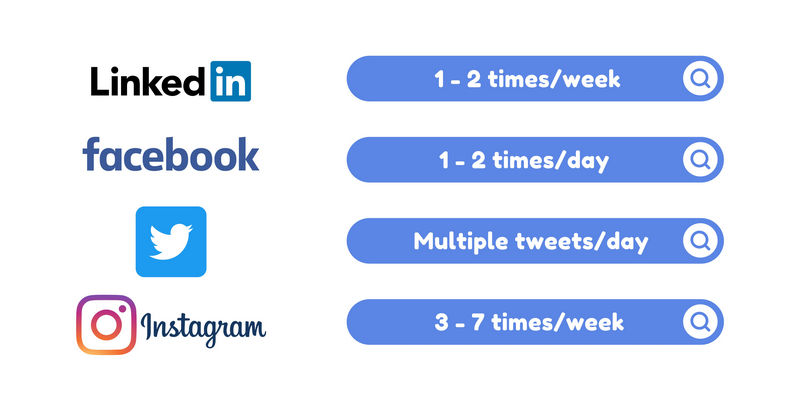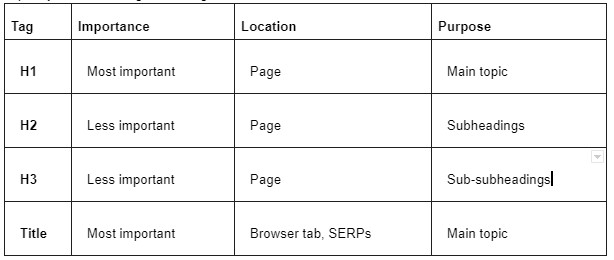Table of Contents
A solid online presence is essential for the success of any B&B field. You can attract more guests and increase bookings by utilizing SEO for Bed and Breakfasts.
Understanding SEO Keywords, implementing On-Page SEO by strategically placing your keywords, and ensuring mobile optimization are 3 crucial factors in boosting your online visibility. With our expert strategies, you can drive more traffic to your website and improve your search engine rankings
What is SEO?
SEO keywords, also known as “keywords” or “keyphrases,” that users enter into search engines to find relevant content. They are essential to search engine optimization (SEO), as they help websites rank higher in search results pages (SERPs).
Google Keyword Planner and SEMrush are two popular tools that can be used to conduct keyword research. Some indexes will be shown:
- Search volume: The number of times for each month that a keyword is searched.
- Competition: The number of other websites targeting the same keywords. You can choose keywords with low competition to have a better chance of ranking high in SERPs.
- Commercial intent: People looking to buy something will likely use the keyword. You can choose keywords with high commercial intent if you sell products or services.

For example
The keyword “iced matcha latte” has a high search volume and medium competition. This means many people are searching for this keyword, but not many websites target it. This would be a good keyword to target for your website.
Another example is the keyword “matcha latte” This keyword also has a high search volume, but the competition is higher than for the keyword “iced matcha latte”. This means it will be more difficult to rank high in SERPs for this keyword, but it is still a good keyword to target if you sell women’s sneakers.
On-Page SEO: Where to Put Your Keywords ?
By putting your keywords in the right place on-page SEO, you can improve your website’s visibility in search results, increase website traffic, improve user experience, and increase brand awareness.
Page Titles
A page title is a piece of text visible at the uppermost part of a web browser window and displayed in search engine results pages. Placing target keywords in the titles of web pages, including the homepage and individual room pages. This will support your website to rank higher in search results for those keywords.
Use keywords early: The first few words in your page title are the most important, as they are the most likely to be seen by people in SERPs. Make sure to include your target keywords early in your title.

Besides that, you also should consider the length of page titles for SEO. According to Moz’s research, when a website’s SEO page title tags are kept to 60 characters or less, Google is likely to display your title in search results approximately 90% of the time. Although Characters vary in pixel width, anything between 50 and 60 characters is the best SEO title length.
For example, if you own a bed and breakfast in England, you would want to include the keywords “bed and breakfast” and “England” in the title of your homepage. You would also want to include these keywords in the titles of the individual room pages on your website
Title Page: The Best Countryside Bed and Breakfast in England 2023
Meta Descriptions
A meta description is a brief snippet of text that appears below the title tag in search engine results pages (SERPs). It is used to give people a brief overview of the content on the page.

Like the page title, the target keyword should be placed early to ensure ranking in SERPs. The optimal length for a meta description is between 150 and 160 characters. Keeping it under 160 characters ensures consumers see the whole message on the results page since Google truncates longer paragraphs.
Use action verbs such as “book now” or “let’s experience” to make your meta description more exciting and engaging.
For example, if you run a B&B in Seoul, you could write a compelling meta description with relevant keywords “best and breakfast” such as “Escape to beautiful Seoul capital of South Korea and enjoy a cozy stay at our bed and breakfast in 2023t. Don’t hesitate to book now for a relaxing getaway.”
Headers (H1, H2, H3)
Many people misunderstand Title and H1. The main difference between them is that the title is the text that appears in the browser tab and SERPs, while the H1 tag is the text that appears on the page. The title is also more important than the H1 tag for SEO purposes.
Normally, the limit to the character count of an H1, H2, or H3 tag is under 60 characters to ensure your headline is easily readable. This recommendation is not a strict guideline that will significantly impact your search engine rankings.

Header H2 identifies subheadings, and H3 is used to identify sub-subheadings on a page. They are essential for structuring content and making it easier to scan. Not using H1 tags and other headings correctly can make pages difficult to skim and digest.
You don’t just stuff your keywords into your headers. Make sure to use them naturally so that your content still reads well. In addition to your target keywords, you can explore synonyms and entity keywords in your headers using the Topical Relevance tool.

Example: When writing an SEO blog post about the best bed and breakfasts in San Francisco. You could use the following headings in your blog post, including the primary keyword “bed and breakfast” and entity keywords “reviews” and “fine dining”
Title Page: The Best Countryside Bed and Breakfast in England 2023
H1: Top Updated List Of The Best Bed And Breakfasts In England 2023
H2: Overview of The Fine Dining Bed and Breakfasts in England
H3: Reviews The Famous Bed and Breakfasts Restaurants with Stunning Views
Website Content
It is important to incorporate keywords naturally into the content of web pages for SEO purposes. Ahrefs suggests selecting one primary keyword and an appropriate number of secondary keywords to cover a topic thoroughly.
- The primary keyword, also known as the target keyword, represents the main subject of a page.
- Secondary keywords are related to the primary keyword and can include synonyms, subtopics, and long-tail variations.
The frequency with which you should use your primary keyword in your content depends on the length of the content. As a general guideline, aim to include your primary keyword approximately once for every 100-150 words. Therefore, in a 1000-word article, it would be appropriate to use the primary keyword around 7-10 times.

TIPS: Use keywords in the first 100 words of your content
Example: When writing room descriptions, amenities, and local attractions, you should include your target keywords naturally. For example, if you are writing a room description for a bed and breakfast in San Francisco, you could include the following keywords:
bed and breakfast
San Francisco
historic
private rooms
suites
stunning views
Image Alt Text
Image alt text refers to the descriptive text that is displayed when an image cannot be loaded on a web page.

There are several benefits to placing target keywords in image alt text:
- Improved SEO
- Better accessibility: By including alt text for your images, you can make your website more accessible to visually impaired people.
- Better user experience: When people hover over an image, the alt text will appear in a tooltip. It can help people understand the image and whether it is relevant to their interests.
URL Structure
Incorporating target keywords into the URL structure is a crucial aspect of SEO. Moz suggests that using the keywords you aim to rank for in your URLs is a good practice. Including keywords in the URL is that it can effectively signal to individuals who come across your URL on social media, in an email, or while hovering over a link that clicking on it will lead them to the content they are seeking.

Mobile Optimization
Mobile optimization is the process of making a website mobile-friendly so that it can be easily viewed and used on smartphones and tablets. It is important because more and more people are using their mobile devices to access the internet.
As per Statista, mobile phones accounted for 52.2% of all website traffic worldwide in the year 2020. And according to a study from Google, 53% of mobile users will leave a website if it takes more than three seconds to load. Test the mobile-friendly level by adding the URL of the website into this tool.

Besides, consider some different methods below to optimize your website to the highest friendly level.
- Use a responsive design: Your website will automatically adjust its layout to fit the device’s screen size (desktop computers / mobile devices / Ipad).
- Optimize your images: Reducing the file size of your images without sacrificing their quality.
Use a mobile-friendly theme or template - Make sure your website loads quickly: Minifying your code and using a content delivery network (CDN).
- Test your website on different mobile devices: Ensure it looks good and works properly.
Mobile optimization is vital for bed and breakfasts because it can improve the user experience for potential customers searching for and booking accommodations on their mobile devices. With more people using their mobile devices to search for businesses, having a mobile-friendly website that loads quickly can help attract more potential customers.
A mobile-optimized website can also make it easier for users to navigate and find the information they need, which can increase the likelihood of them making a booking. Additionally, mobile optimization can improve your search engine rankings, making it easier for potential customers to find your bed and breakfast when searching for accommodations in your area.
Revolutionize your hotel’s online presence with TravelerWp. The ultimate SEO-Optimized WordPress hotel theme. Maximize visibility, Stunning visuals, Mobile-friendly. Elevate your hotel website today!
Conclusion
SEO is essential to running a successful bed and breakfast website. By incorporating target keywords into page titles, meta descriptions, headers, website content, image alt text, and URL structure, you can improve your search engine rankings and attract more potential customers.
Additionally, ensuring that your website is mobile-friendly and loads quickly help more people are using their devices to search for businesses.
Following these best practices above can optimize your bed and breakfast website for search engines and improve your online visibility.
